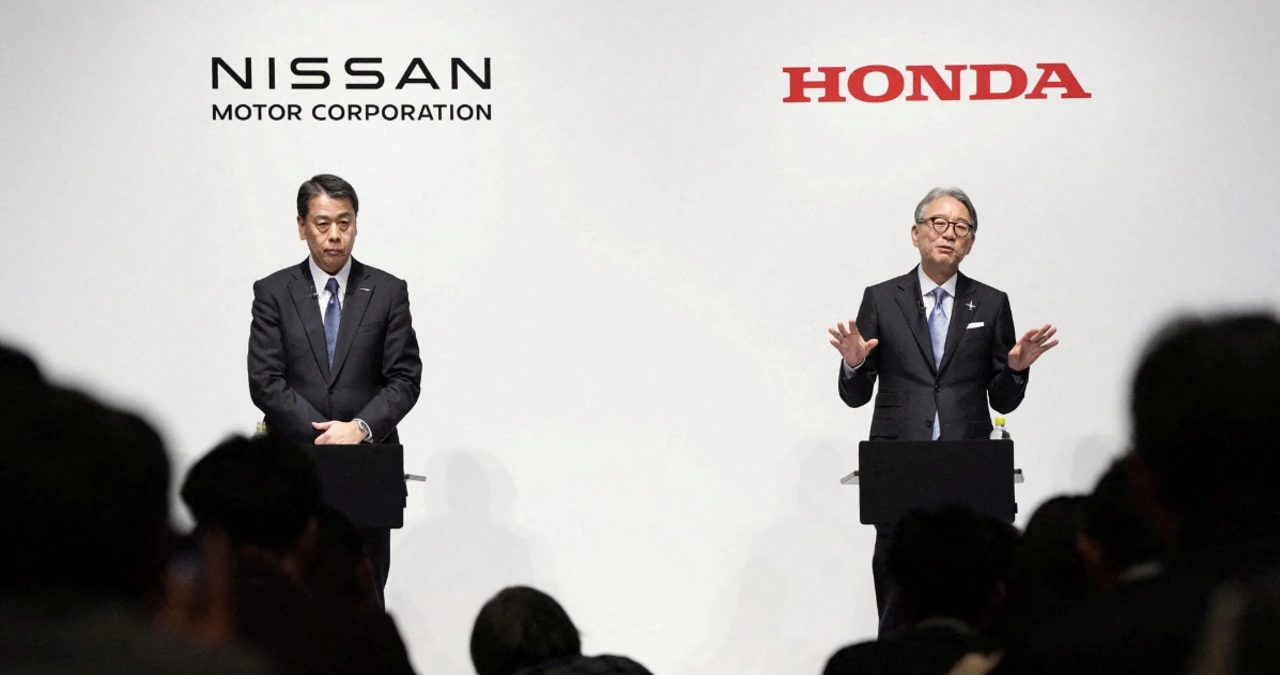image credit-George L Peters Jr
Honda Nissan Merger-Japanese automotive giants Honda Motor Co. and Nissan Motor Co. are engaged in discussions regarding a potential merger. This strategic move aims to enhance their competitiveness in the rapidly evolving electric vehicle (EV) sector, where they face significant challenges from companies like Tesla and emerging Chinese manufacturers.
Background and Rationale
Both Honda and Nissan have encountered difficulties adapting to the global shift towards electric mobility. In China, the world’s largest automotive market, they have struggled to keep pace with local EV producers, leading to declining sales and market share. By merging, the two companies aim to pool resources, share technological advancements, and achieve economies of scale to better compete on a global scale.
Potential Structure of the Merger
Reports suggest that the merger discussions include the possibility of establishing a holding company that would oversee both Honda and Nissan. This structure could also involve Mitsubishi Motors, in which Nissan holds a significant stake, thereby creating a formidable automotive alliance. Such a merger would result in combined vehicle sales of approximately 8 million units, positioning the new entity among the world’s top automotive manufacturers.
Market Reactions
The news of the merger talks has elicited mixed reactions in the financial markets. Nissan’s stock experienced a significant surge, rising by nearly 24%, reflecting investor optimism about the potential benefits of the merger. In contrast, Honda’s shares declined by about 3%, indicating investor concerns regarding the merger’s implications for the company.
Government and Industry Implications
The Japanese government has previously expressed concerns about the domestic automotive industry’s ability to compete with international EV manufacturers. A merger between Honda and Nissan could address these concerns by consolidating resources and fostering innovation. However, there are apprehensions about potential job cuts and the impact on Japan’s automotive workforce, which could lead to political and public resistance.
Future Prospects
While the merger talks are in preliminary stages, the potential combination of Honda and Nissan signifies a strategic effort to navigate the challenges of the modern automotive landscape. By uniting their strengths, the companies aim to accelerate the development of electric and autonomous vehicles, streamline operations, and enhance their global market presence.
FAQs
- Why are Honda and Nissan considering a merger?
The primary motivation is to enhance competitiveness in the electric vehicle market by pooling resources, sharing technology, and achieving economies of scale. - How would the merger impact the global automotive industry?
A merger could create one of the world’s largest automotive manufacturers, potentially reshaping competitive dynamics, especially in the EV sector. - What challenges might the merger face?
Potential challenges include regulatory approvals, integration of corporate cultures, possible job cuts, and public or political opposition in Japan. - How have investors reacted to the merger talks?
Nissan’s stock surged by nearly 24%, indicating investor optimism, while Honda’s shares declined by about 3%, reflecting some investor concerns. - What is the timeline for the merger?
The discussions are in preliminary stages; no specific timeline has been announced for the potential merger.
